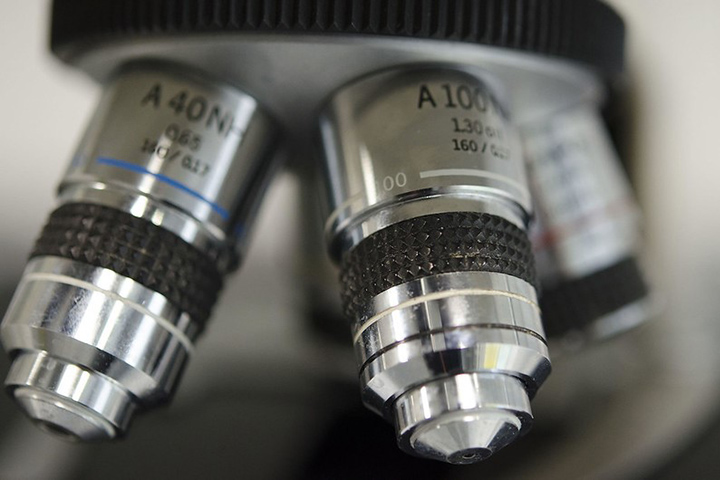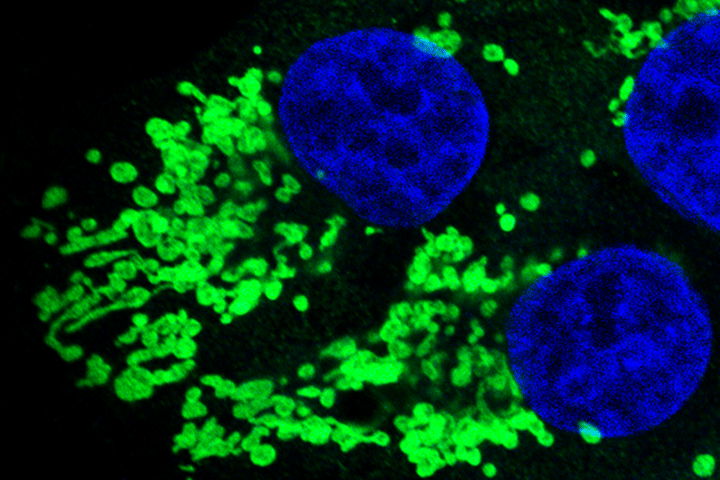Two New Immunotherapy Trials Aim to Make Therapy More Effective

University of Liverpool Faculty of Health & Life Sciences; Flickr
The biology of pancreatic cancer makes it tough for immunotherapies to be effective.
The disease is often called immunogenically “cold,” which, in simplest terms, means it has developed ways to outwit the immune system. A host of factors inherent to pancreatic cancer—like stellate cells, fibroblasts, immune cells, the extracellular matrix (ECM), and some other immune-suppressive molecules—creates an environment that isn’t hospitable to the optimal conditions for producing an immune reaction.
But that doesn’t mean immunotherapy won’t work in the future; researchers are exploring new avenues to help boost immunotherapy’s efficacy in this tough-to-treat disease.
Ongoing clinical trials at Johns Hopkins (Baltimore, Maryland) suggest that pancreatic cancer’s immunologically cold status may not be set in stone: For example, a cancer vaccine developed at Hopkins appears to switch these tumors into “hot” tumors, opening the door for checkpoint inhibitors and other types of immunotherapies.
Two new vaccine trials at Hopkins are part of the Lustgarten Foundation’s Clinical Accelerator Initiative. The program aims to ensure that the most promising research advancements and new treatments are made possible by focusing on launching new clinical studies in a way that shortens the time required to move from concept to study launch. It also helps in the development of smarter clinical trials that generate as much data as possible in this shortened time frame.
The two studies at Johns Hopkins will build on work coming from the lab of Elizabeth M. Jaffee, M.D., professor of oncology and Deputy Director, the Sidney Kimmel Comprehensive Cancer Center, and her team. Both newly funded studies will look at novel combinations of vaccines and drugs targeting the immune system to determine if they can overcome pancreatic tumors’ resistance to immune therapies. One study will enroll metastatic patients, while the other will target patients who are eligible for surgery.
Metastatic Disease and Immunotherapy Study
For patients with metastatic disease, the immunotherapy study will use a combination of agents, with patients being assigned to different arms. These open-label sub-studies are designed to evaluate the success of myeloid-stromal targeted agents, each with different mechanisms of actions, at reprogramming the tumor microenvironment to facilitate T cell infiltration and activation by immune checkpoint inhibitors. In many cancers these immune checkpoint molecules act like an “off switch” for T cells and shut down the immune response.
The study will also use the listeria vaccine. Listeria bacteria augment the vaccine response and are engineered to express mesothelin, an immune cell-alerting antigen or tumor characteristic common to many pancreatic cancers. A master protocol will be used to standardize enrollment criteria and biospecimen collection and to facilitate rapid testing of new hypotheses and different combinations of agents. The subprotocol that is being proposed is the combination of CRS-207, pembrolizumab, ipilimumab, and tadalafil.
The investigators are Dung Le, M.D., professor of oncology at Johns Hopkins, and Katherine Meryl Bever, M.D., assistant professor of oncology at Johns Hopkins.
Resectable Pancreatic Cancer and Immunotherapy Study
The other study focuses on the immunotherapy combination of nivolumab and an anti-IL-8 antibody, with or without GVAX, as a neoadjuvant and adjuvant therapy for resectable pancreatic cancer. GVAX was developed by Jaffee and Daniel Laheru, M.D., Co-Director, Skip Viragh Center for Pancreas Cancer Clinical Research and Patient Care. It supercharges the immune system and causes immune cells, which tend to be tolerant of cancer, to seek out and kill pancreatic cancer cells throughout the body. The vaccine uses pancreatic cancer cells from patients who have been treated with radiation to inhibit those cells’ ability to grow. These cells have also been genetically altered to secrete a molecule called GM-CSF. This molecule acts as a lure to attract immune cells to the site of the tumor vaccine, where they encounter proteins called antigens on the surface of the radiated cells. These newly armed immune cells patrol the rest of the patient’s body to destroy any circulating pancreatic cancer cells still remaining. Since pancreatic cancer is often found in areas outside of the pancreas, the vaccine could allow physicians to target microscopic cancer cells that could escape other therapies.
Nivolumab is an antibody that binds to PD-1 and blocks signaling mediated by PD-1/PD-L1 interactions. It also blocks signaling mediated by PD-1/PD-L2 interactions. The overall goal of this project is to test the hypothesis that inhibiting the trafficking of tumor-associated neutrophils will overcome the barriers to high “quantity” and high “quality” effector T cells trafficking and function in pancreatic cancer.
The Johns Hopkins principal investigator is Lei Zheng, M.D., Ph.D., Co-Director of the Pancreatic Cancer Precision Medicine Center of Excellence Program and professor of oncology.





